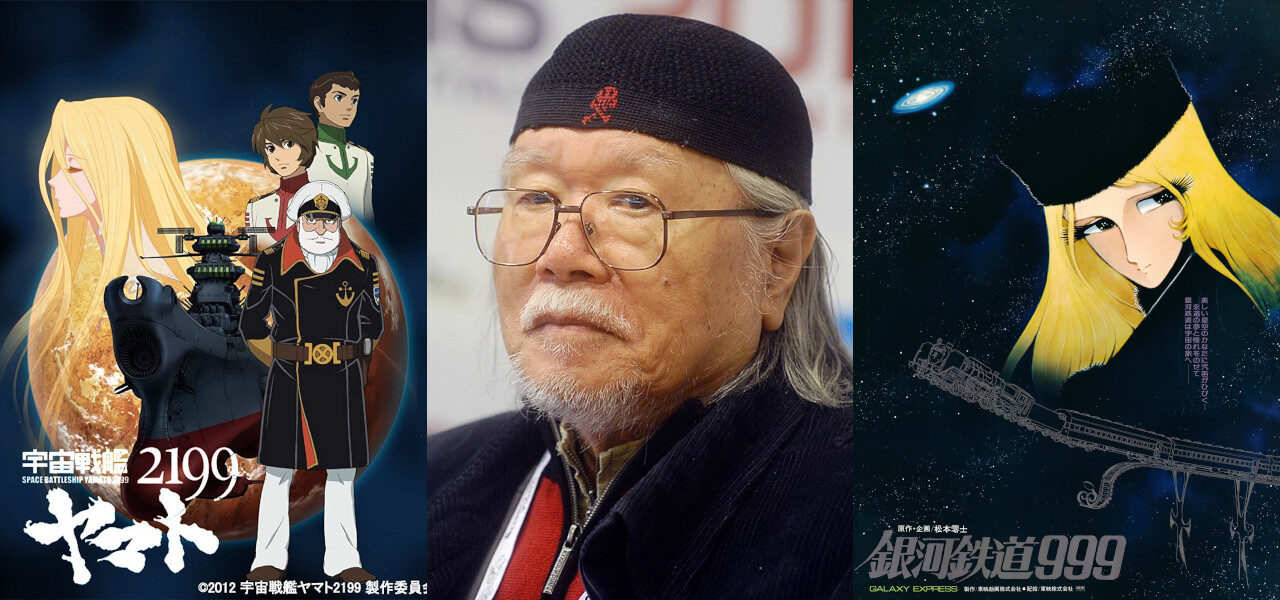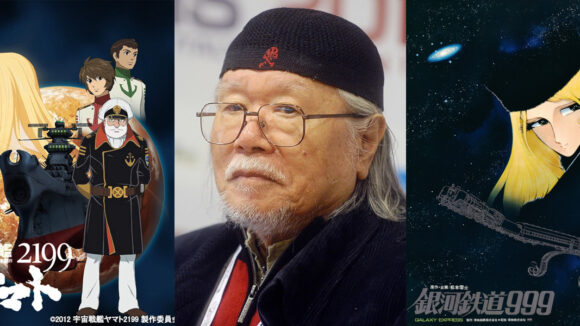

Leiji Matsumoto, Legendary Manga And Anime Creator, Dies At 85
Renowned Japanese manga and anime creator Leiji Matsumoto died of heart failure on February 13. He was 85.
News of Matsumoto’s passing was announced by his company Studio Leijisha.
Born Akira Matsumoto in 1938, Matsumoto grew up in Fukuoka Prefecture and began drawing when he was five years old. He was only 15 when his first manga, Mitsubachi no Boken (Honey Bee’s Adventures), was published in Manga Shōnen magazine.
Shortly after graduating from high school, Matsumoto moved to Tokyo with the dream of making a living as a professional artist. There, in 1961, he married Miyako Maki, one of Japan’s earliest women manga artists and the creator of the dress-up doll Licca-chan, a Japanese figure akin to Barbie. Matsumoto and Maki collaborated numerous times over the years and founded Leijisha Studio together.
After writing under several pen names, Matsumoto finally adopted the name Leiji Matsumoto in 1965 and published under the pseudonym for the rest of his career. His big breakthrough came in 1972 when he published Otoko Oidon, a manga series about a poor young man studying for his university entrance exams in Tokyo.
Matsumoto was a prolific artist and he published hundreds of books over the following decades, several of which were adapted as animated tv series that have become timeless classics. His work frequently explored themes of history, war, and technology, and was usually set in a stylized version of the future. Having grown up in Japan during and after World War II, Matsumoto’s books and series regularly bore the marks which that conflict left on their creator. More than 150 of his stories depicted the tragedy of war.
According to the Associated Press, Matsumoto’s father, an elite army pilot, was entirely against the act of war. Speaking to Japanese broadcaster NHK in 2018, Matsumoto remembered watching his father apologize to the mothers of comrades who were lost while serving under his authority.
“War destroys your future,” Matsumoto told NHK, lamenting the loss of so many young people that might have one day “contributed to the civilization” of mankind. “I was told by my father that any life is born in order to live, not to die. I think we should not be wasting time fighting on the Earth.”
Among Matsumoto’s most popular and enduring animated works were Space Battleship Yamato, Galaxy Express 999, and Space Pirate Captain Harlock. Despite fantastic scenes of futuristic battles, the series regularly highlighted the terrible cost of the act.
Space Battleship Yamato, perhaps the most enduring of Matsumoto’s creations, featured a war between humanity and invading alien conquerors. The series received numerous spinoffs, remakes, and a live-action feature adaptation. It’s credited as a major influence on popular science fiction franchises including Gundam and Neon Genesis Evangelion.
While war was a major theme in much of Matsumoto’s work, he was equally fascinated by human history and the possible future of the species. Speaking with The Japan Times in 2017 he explained, “When I was a child, and indeed throughout my life, I was always thinking and reading about the Earth and sentient beings in the past, present, and future.” That fascination is clear throughout most of his work.
Younger generations are likely to recognize the work Matsumoto did for the French electronic music group Daft Punk. The band members were fans of his classic animated series and asked Matsumoto to create several music videos for them, including for the hit song One More Time. Matsumoto was also credited as supervising director on Interstella 5555, an animated feature written by Daft Punk members Thomas Bangalter and Guy-Manuel de Homem-Christo alongside regular collaborator Cédric Hervet.
Throughout his career, Matsumoto received numerous cultural and art honors awarded by the Japanese government, including the Order of the Rising Sun and the Medal with Purple Ribbon. The French government granted him the honorific Knight of the Order of Arts and Letters.
After his passing, Matsumoto’s daughter Makiko Matsumoto, who leads Studio Leijisha, said in a statement that her father had “departed for the sea of stars at a hospital in Tokyo on February 13, 2023, at the age of 85. The farewell ceremony has already been held with close relatives. I think it was a happy life.”
She went on, “Matsumoto always said, ‘At the point where the wheels of time meet again, we will meet again.’ We believe in those words and look forward to that day.”
Pictured at top: Space Battleship Yamato, Leiji Matsumoto – Credit: Niccolò Caranti, Galaxy Express 999

.png)